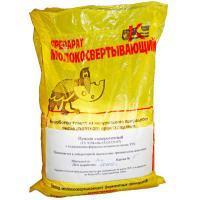Russian Foreign Ministry assesses Iran's statement on NPT withdrawal
Moscow regards Iran's statements about a possible withdrawal from the Treaty on the Non-Proliferation of Nuclear Weapons (NPT) as a warning in response to threats from Western countries to restore international sanctions against Tehran, the Russian Foreign Ministry told RBK.
"The statements by Iranian representatives that you mentioned must be analyzed and objectively assessed as a warning signal in the context of the threats that certain players in the international arena are trying to create for it, including by openly discussing military strikes against Iran's nuclear energy infrastructure facilities," the department explained. "We hope that those who are trying to push Iran out of the NPT will realize their level of responsibility and reconsider the destructive course they are pursuing."
RUSSIA "consistently advocates for strengthening the NPT and its further universalization," the Foreign Ministry noted; Iran, in turn, "unswervingly fulfills its obligations under the NPT." "Among its opponents and adversaries, there are plenty of those who are just waiting for Tehran to "miss." We hope that their malicious plans will not work," they said at Smolenskaya Square.
On January 20, Iranian Foreign Ministry spokesman Esmail Baghaei told reporters that Tehran would withdraw from the NPT if Western countries initiated the renewal of international sanctions in the UN Security Council. “Iran has never discussed or talked with anyone about its defense or military potential. <...> However, if the snapback mechanism is activated, our response will be symmetrical. We will have no reason to remain in some agreements,” he said ( quoted by TASS ).
In December 2024 , the EU3 countries that signed the Iran nuclear deal, Britain, Germany and France , declared at the UN Security Council that they were prepared to initiate the so-called snapback mechanism, which would reimpose international sanctions on the Islamic Republic, if necessary to prevent Iran from acquiring nuclear weapons. This mechanism is spelled out at the beginning of the nuclear deal agreement (section “Application of provisions of previous resolutions”, paragraph 11). It states that any state party can inform the UN Security Council “of a material failure to fulfill the obligations” of the agreement, after which the council can put to a vote a resolution “on continuing the termination regime”.
The Joint Comprehensive Plan of Action (JCPOA), or the Iran nuclear deal, is a document according to which Iran, in exchange for the lifting of international sanctions, limits its nuclear program, excluding the creation of nuclear weapons. It was signed in Vienna in the summer of 2015 - Iran on one side and the E3/EU+3 countries (Britain, Germany, France/EU + CHINA , Russia, usa ) on the other. In 2018, US President Donald Trump announced the US withdrawal from the JCPOA and the introduction of additional sanctions against Iran. Tehran complied with its obligations for another year, and in 2019 announced their suspension. Under the Joe Biden administration, negotiations were underway to restore the agreement, but this was never achieved.



























































